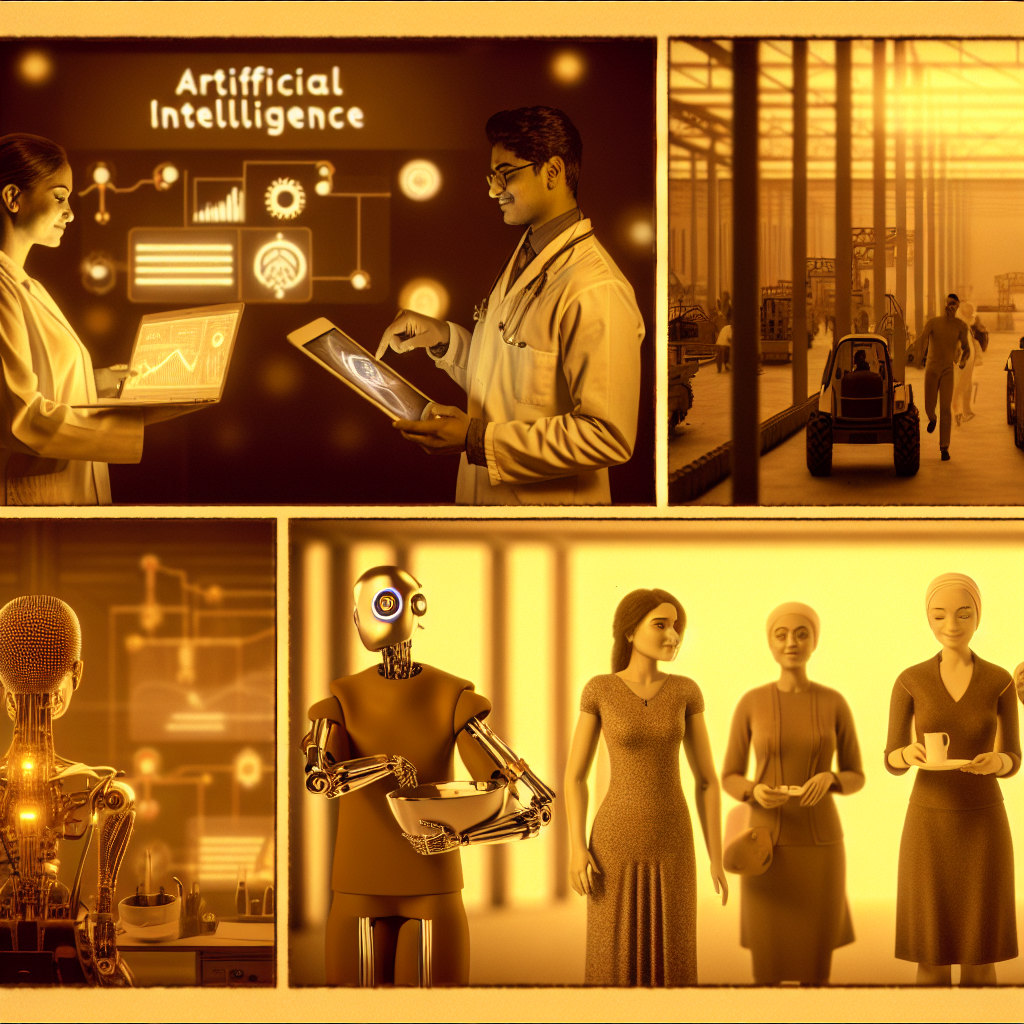
Introduction: AI Beyond the Hype
Artificial Intelligence (AI) has rapidly evolved from being a trendy buzzword to becoming a transformative force across industries. From healthcare to entertainment, AI is **revolutionizing industries** by automating processes, improving efficiency, and fostering innovation. But how exactly is AI impacting industries beyond the hype? Let’s dive into the ways AI is changing the game and what it means for businesses and individuals alike.
What Makes Artificial Intelligence a Game-Changer?
AI stands out for its ability to replicate and even improve upon human capabilities like decision-making, problem-solving, and predictive analytics. Unlike traditional software systems, **AI learns and adapts**, making it a highly dynamic tool across various applications.
- Automation: Replacing repetitive tasks with intelligent systems.
- Decision-Making: AI analyzes data in real-time, offering actionable insights.
- Personalization: Tailored experiences based on user behavior and preferences.
- Scalability: Businesses can grow without proportionally increasing resources.
These capabilities are no longer restricted to tech giants—they are accessible to businesses of all sizes, creating unprecedented opportunities for growth.
Industries Revolutionized by Artificial Intelligence
AI’s impact reaches across nearly every sector. Below, we highlight its profound influence on key industries:
1. Healthcare: Precision and Patient-Centric Care
AI has ushered in a new era of **precision medicine and diagnostics**. Advanced algorithms analyze medical images, detect anomalies, and assist in early diagnoses.
- Medical Imaging: Companies like Zebra Medical Vision and Aidoc use AI to detect diseases early.
- Predictive Analytics: AI identifies patients at risk by analyzing historical data.
- Drug Development: AI accelerates the discovery of new drugs, cutting years off the timeline.
Internal Link: Check out our in-depth article on [how AI is revolutionizing healthcare](https://www.aidigestfuture.com/how-ai-is-transforming-healthcare).
2. Retail: Enhancing Customer Experience
Retail has seen significant shifts due to **AI-driven personalization**. From targeted recommendations to inventory optimization, AI is providing retailers with a competitive edge.
- Chatbots: AI-powered chat systems offer 24/7 customer support.
- Recommendation Engines: E-commerce platforms like Amazon use AI to suggest products tailored to customer preferences.
- Demand Forecasting: AI predicts sales trends, allowing efficient stock management.
3. Financial Services: Risk Management and Fraud Detection
AI’s ability to process massive amounts of data has turned it into a crucial tool in the financial sector. Financial institutions use AI for:
- Risk Assessment: AI evaluates creditworthiness and reduces human bias.
- Fraud Detection: Algorithms flag unusual transactions in real-time.
- Trading: High-frequency trading algorithms outperform traditional traders.
Internal Link: Learn about the future of AI in [financial services and fintech here](https://www.aidigestfuture.com/ai-in-financial-services).
4. Manufacturing: Smarter Factories
The rise of **Industry 4.0** is heavily reliant on AI-driven solutions. Smart factories leverage AI to optimize production, improve quality, and reduce waste.
- Predictive Maintenance: AI monitors equipment to prevent breakdowns.
- Robotics: Automated machines powered by AI handle repetitive tasks with precision.
- Supply Chain Optimization: AI improves logistics planning and reduces delays.
5. Education: Personalized Learning Experiences
AI is revolutionizing education by tailoring learning experiences based on individual needs. Applications include:
- AI Tutors: Virtual tutors provide instant feedback to students.
- Smart Content: Platforms like Coursera use AI to recommend learning paths.
- Accessibility: AI tools help students with disabilities access educational content more easily.
Internal Link: Want to know more about **AI in education**? [Read here](https://www.aidigestfuture.com/ai-in-education-in-2023).
The Roadblocks to AI Adoption
Despite its transformative potential, AI adoption isn’t without challenges:
- Ethical Concerns: Misuse of AI in surveillance and data privacy is a significant worry.
- Cost: Implementing AI solutions can be expensive for small businesses.
- Skill Gap: The demand for AI expertise often outpaces the availability of trained professionals.
- Bias in AI: Algorithms can unintentionally replicate existing biases in society.
How to Overcome These Barriers?
To fully harness the benefits of AI, organizations must focus on:
- Investing in Training: Upskilling employees to work with AI systems.
- Prioritizing Ethics: Embedding ethical considerations into AI development.
- Collaborating with Experts: Partnering with professionals to implement robust AI strategies.
What’s Next for AI?
The future for AI is both exciting and transformative. As AI tools become more sophisticated, we can expect developments such as:
- Explainable AI: AI systems offering transparent decision-making processes.
- Edge AI: Processing AI on local devices rather than centralized servers for faster decision-making.
- Quantum AI: Leveraging quantum computing to solve complex problems beyond traditional AI capabilities.
Conclusion: AI’s Role as a Catalyst for Change
Artificial Intelligence isn’t just a buzzword; it’s an essential enabler of industry-wide transformation. From personalizing customer experiences to streamlining workflows and revolutionizing healthcare, AI’s far-reaching potential is shaping the future. Businesses that embrace AI today are well-positioned to thrive in the ever-changing landscape of tomorrow.
Internal Link: Stay updated with the latest trends—explore our in-depth reporting on [AI and its applications](https://www.aidigestfuture.com/ai-trends).
